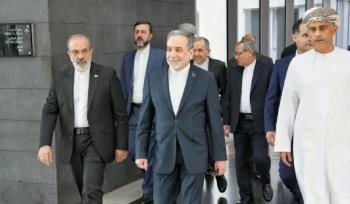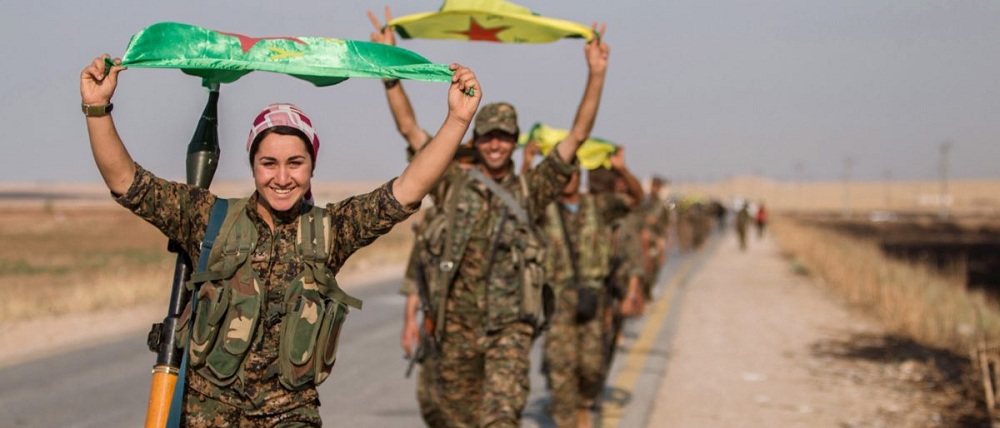Alwaght- Under the current conditions, the Syrian Kurds have transformed to one of the major actors on the Syria's political and field stage. Accounting for about 10 percent of Syrian population, the Kurdish minority is present in north of the country and governed by a self-administered local system that has since the start of the conflict united the three cantons of Island, Kobani, and Afrin.
In the initial stages of the Syrian crisis, Kurds exercised restraint and neutrality, with their policy standing on the principle of neither fighting the central government in Damascus nor the takfiri terrorist groups. But this policy changed after ISIS arrival and attacking of the Kurdish-inhabited regions of the country. They had to defend their regions and launch counterattacks. Various sources have claimed that Kurds made a deal with the government and agreed to help Damascus counter terrorists in return for a set of privileges, including receiving citizenship.
In the meantime, Kurds mobilized their forces under the Democratic Union Party (PYD) and become the leading part of a coalition that has combated ISIS in Raqqa in northern Syria, and managed to take major portion of the de facto capital of the self-proclaimed ISIS caliphate with backing from the US.
At the present time, two major developments have aggrandized the position and future of the Syrian Kurds. First is the demise of ISIS as the country is not far from fully recapturing Raqqa and Deir ez-Zor and cleansing the two last ISIS strongholds of the extremist group's fighters. Second is the last week referendum of Iraq’s Kurdistan region that is naturally expected to influence the Kurdish minorities in the whole region, especially those in Syria.
The separatist sentiments has been existing among the Syrian Kurds for a long time, however, their major role played on the battlefields has even sharpened their desire for breakaway from Syria. They announced establishment of Democratic Federation of Northern Syria or Rojava in March 2016 following a meeting that saw various Kurdish factions gathering in Rmeilam in the northern province of Hasakah. Rojava in the Kurdish language means “Western Kurdistan” that covers the northern parts of Syria.
However, the Kurds' federal system has failed to receive recognition of any country so far. They argue that the move was needed as a prelude to a broader movement to restore their “lost” rights. The Rojava held its first local elections in September 22 to pick representatives of 3,700 communes throughout the self-governed cantons. The region has also scheduled to hold election of “local councils” on November 3, .followed by the federal parliamentary election of the People’s Democratic Council as the highest executive body of the region, on January 19, 2018. The Kurdish leaders claim they are not aspiring for independence from Syria and only seek federal rule in north.
Beside garnering the US backing, the Syrian Kurds opened their representation offices in Moscow and other European capitals over the past year. This comes while the West does not give the Syrian Kurds official status and they even were excluded from the Geneva peace talks. However, the PYD attended the Astana peace talks, a peace arrangement brokered by Russia, Turkey, and Iran between the Syrian government and the opposition groups, at the invitation of Moscow.
Up to now, the Kurds might have managed to gain the American and European support, but they remain facing tough antipathy of Turkey. Ankara accuses them of being affiliated with Kurdistan Workers' Party (PKK), an archenemy to Turkey, and representing its line of thought and policy in Syria. The US help for advancing Syrian Democratic Forces, a coalition majorly featuring armed Kurdish factions and minority Arab militia, aroused the ire of Turkey provoking the country to launch a major offensive in northern Syria in December 2016. The offensive, codenamed Operation Euphrates Shield, was aimed at curbing the US-backed Kurdish coalition's progression to Syria's northwestern areas. The Kurds' anti-ISIS campaign was meant to retake territories from ISIS and thus expand their areas of rule in north to the Mediterranean coasts.
On the other side, Damascus has accused the Kurds of seeking independence after they announced foundation of a federal region in north. Russia, an influential player on the Syrian scene, has suggested autonomy to the Kurds and recognition of the Kurdish language in the potential new Syrian constitution but opposed premature establishment of federal rule in the predominantly Kurdish areas of north, arguing that this status should be postponed until negotiations with Damascus are conducted and deals struck.
Iran, another key actor in Syria, comes against any secessionism by the Syrian Kurds, as it strongly opposed the referendum of independence held by Iraq’s Kurdish region on September 25, insisting that the countries' sovereignty and integrity must be maintained.
Bearing the brunt of war and crisis and organizing forces to defend their northern territories in fierce battle against ISIS, the Kurds are now rising as an important actor and are making claims for shares and restoration of their historical rights.
The US supports for Kurds have emboldened their demands for a northern federal system. They held first election in late September as a first phase of the federation elections. Washington pursues the ultimate goal of Syria split by showing advocacy for the federation of the north. The green light given to the Kurds for separatist measures serves the American objective of downsizing and thus impairing Syria, a major party in a broader anti-American regional bloc, dubbed as Resistance Axis that is led by Iran. But it remains unclear how serious are the split plans or how successful the Kurds could be in realization of their autonomy.
Analysts do not rule out repeat of history in relation to the Kurds. Namely, the Kurds fall instrument to the superpowers' game for materialization of their interests, and at the end of the road the gainers turn their back to the promises they initially made to the Kurds.
Although, Iraqi Kurds certainly have a long and rough way to the independence through their plebiscite, their independence bid psychologically serves as a catalyst to the Syrian Kurds’ chase of dreams and demands for a federal rule. But they have Turkey and its allies Iran and Russia's opposition that sets up serious roadblocks to Syrian Kurds’ separatist ideals.
Anyway, amid Syrian closeness to end of war, the Kurds' future is largely reliant on the political process, new constitution, and negotiation and interaction with the central government. What is clear is that Syria’s future, of course, will not stay away from influence and role playing of the foreign sides who each struggles to benefit from the Kurdish card for their own goals.



























